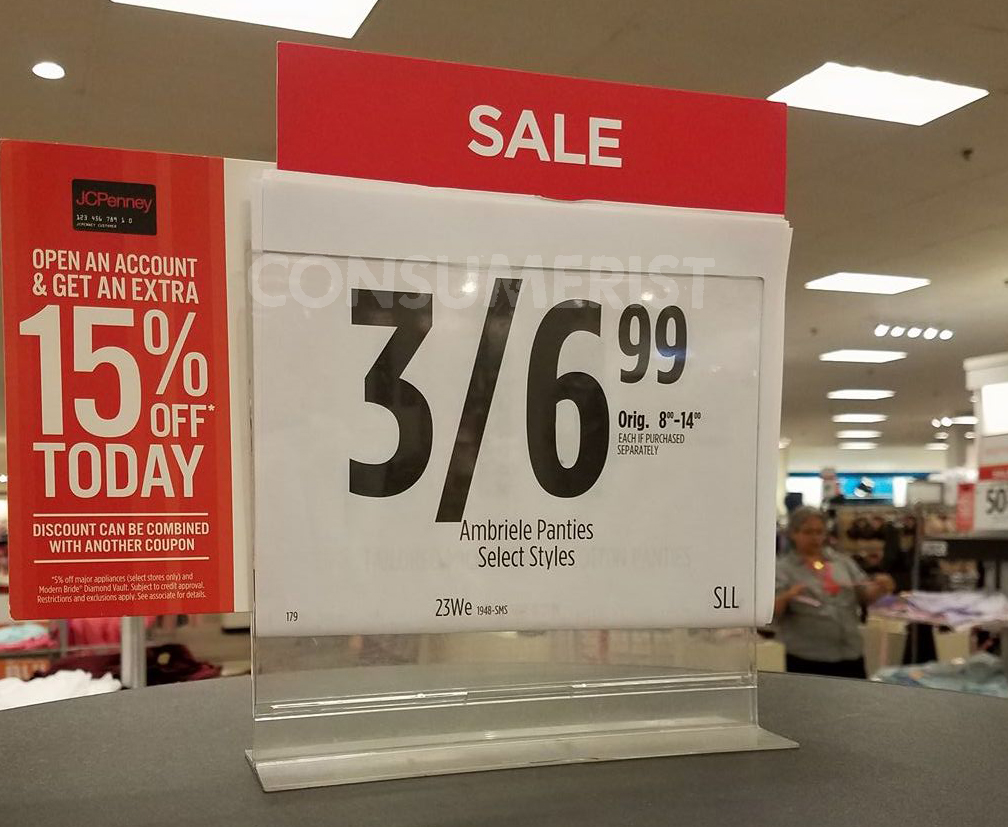Have you ever picked up items on sale, only to have them ring up for a lot more than you expected at the checkout counter? Here’s a real-world example from a JCPenney store of how that happens. [More]
fuzzy math
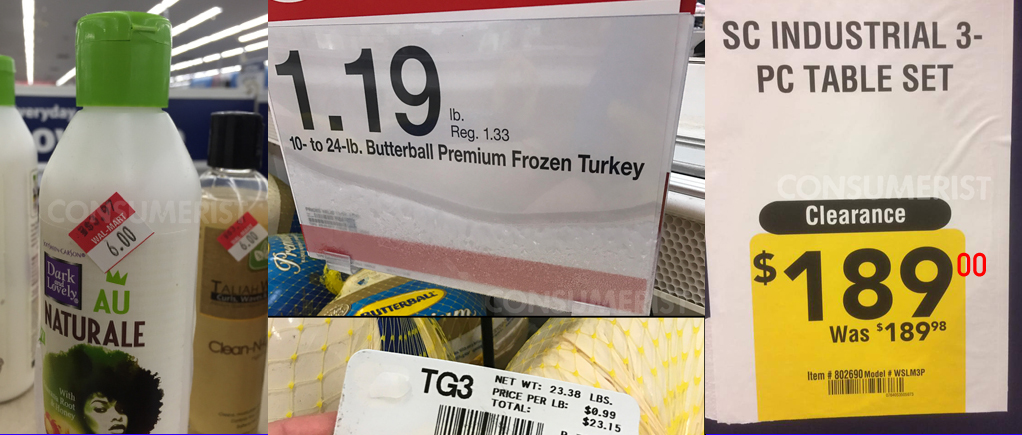
‘Target Math’ Continues To Spread, Infecting Lowe’s & Walmart
The discount chain Target is very good at many things, which include designer partnerships and building tiny stores. It’s very bad at some other things, which include selling groceries and putting prices on products that make any sense. “Target Math” is the name we give to these bizarre bulk markups, “sale” items that aren’t actually discounted, and pricing discrepancies within the same store — but this dubious art isn’t just practiced in the halls of Target. [More]
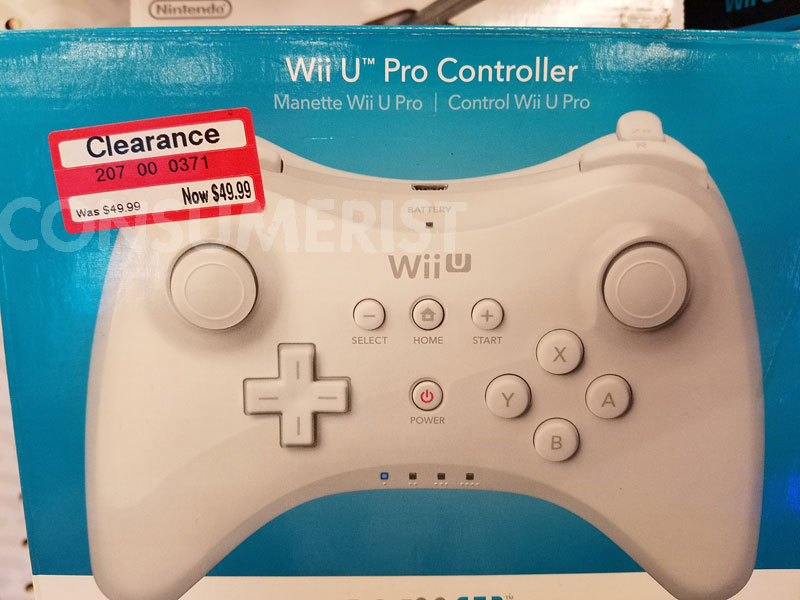
Target And CVS Still Not Really Sure How Sales Work
When retail pricing defies common sense, that’s what we call Target Math. Sometimes it’s putting an item on sale for more than the original price, and sometimes it’s making items cost more per unit to buy in bulk than to buy just a few. They aren’t exclusive to Target, but for some reason these errors happen very often there. Here are some examples, which aren’t all from Target. Most of them are, though. [More]

Here’s Some Fuzzy Pricing Math That Isn’t At Target
We began calling certain types of fuzzy pricing schemes “Target math” some years ago, since they turned up most often at Target stores. When this happens, unit pricing goes awry, and it costs more per unit to buy a larger quantity of the same thing. For example, when a two-pack of lotion costs almost a dollar more than two individual bottles. [More]

Fuzzy Math At Walmart Means Bigger Chicken Broth Carton Costs You More
On the shelf, the 48-ounce carton of Swanson’s chicken broth brags that it’s 50% bigger. “50% bigger than what?” the cynical consumer might ask. The fine print tells us that it’s in comparison to the company’s 32-ounce container. This is all factually true, but the problem is that while the package makes shoppers think that they’ll get more, they’re actually paying more per ounce to buy the bigger package. [More]

Walmart Charges Extra $0.08 To Put Your Printer Cartridges In A Single Box
Theoretically, buying combination packs or buying an item in bulk should save you money. You’re giving the retailer more money, right? Only the pricing logic of big-box stores doesn’t really see things that way, and that’s where Target Math comes from. Target Math is when you pay more per unit for buying in bulk, like this combo-pack of printer ink where you pay an extra eight cents for the privilege of having your cartridges in one box. [More]
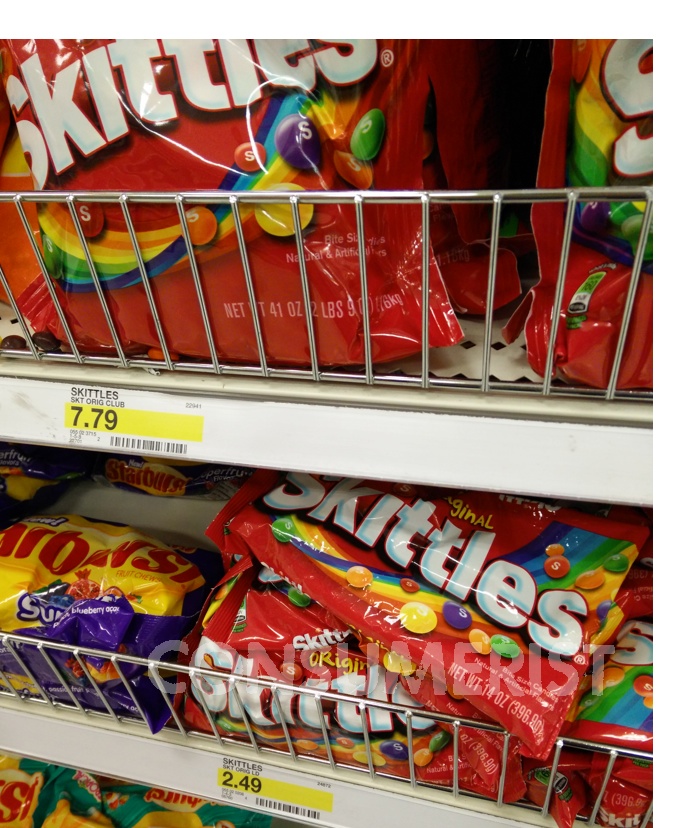
Target’s Fuzzy Math Spreads To Dollar General
Imagine that you need 42 ounces of Skittles. We’re not sure what you need them for; it’s your life. When shopping in large quantities, always check for dastardly Target Math, which exists to trip up innocent shoppers like you who just want a large quantity of something. Instead, Target Math makes you pay more per ounce when you buy in bulk, while you could have purchased multiples of a smaller size for less money. [More]
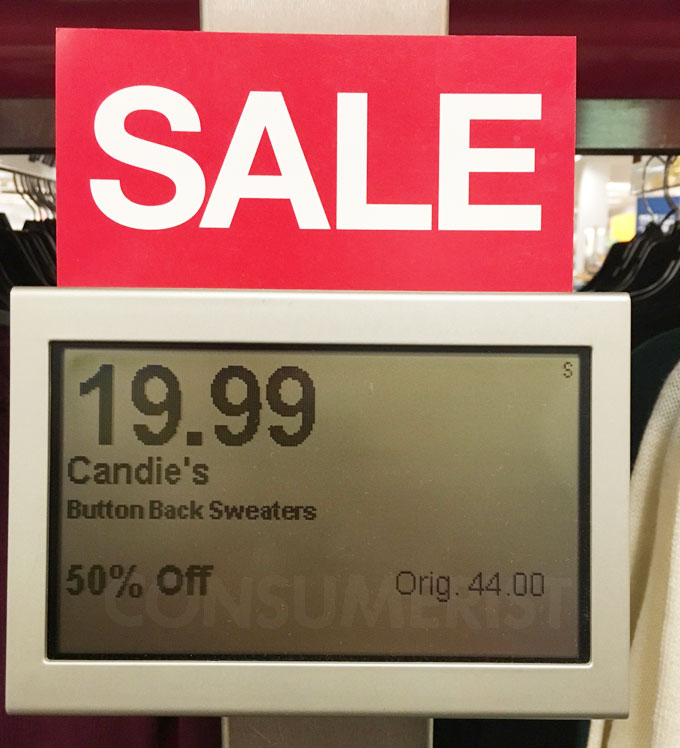
Kohl’s Math Means Percentages Don’t Make Any Sense
In retail, Target Math is when one of two things happen: an item on sale isn’t actually marked down (sometimes it becomes more expensive) or an item becomes more expensive when you buy it in greater quantities. Maybe we need to start tracking a new variant called Kohl’s Math, where percentage-off signs don’t actually reflect the “sale” price that they’re supposed to. [More]
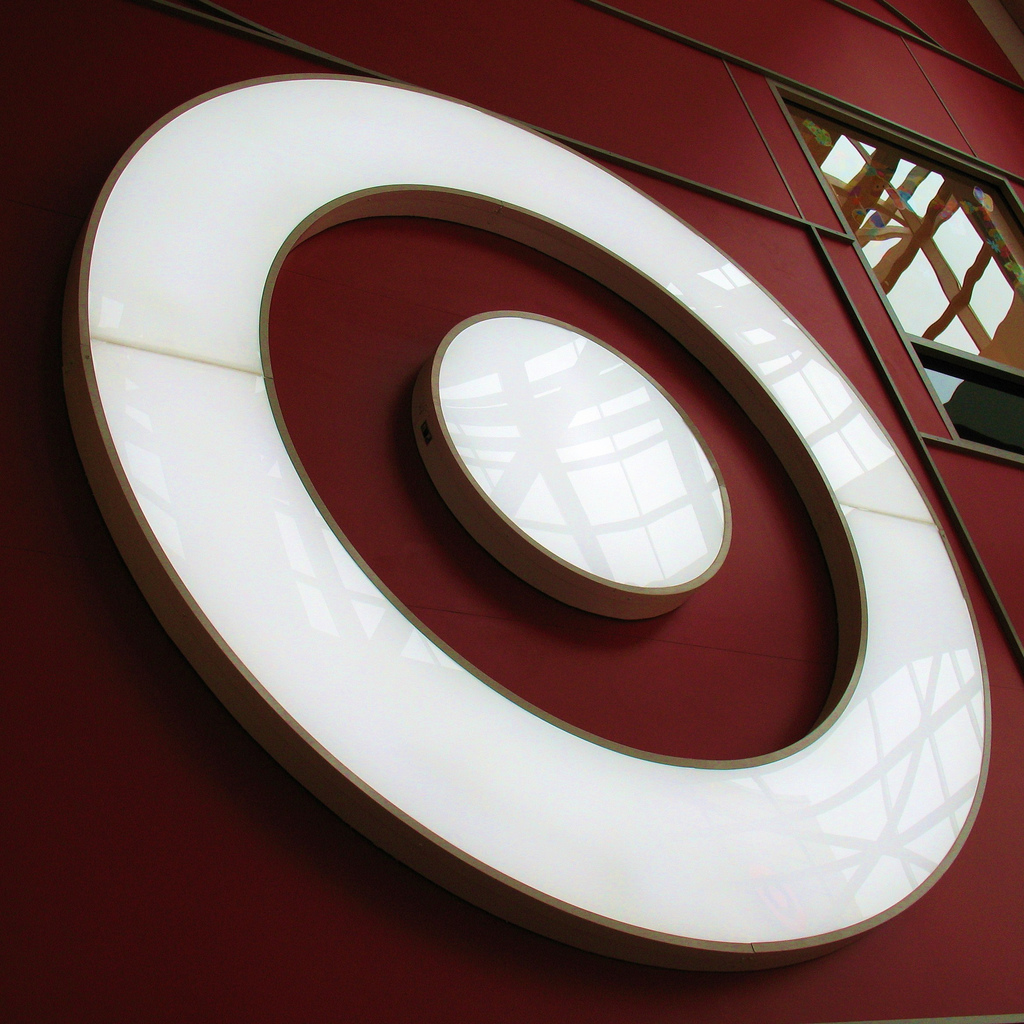
Target Agrees To Pay $3.9M To Settle False-Advertising Lawsuit
It seems some of that infamously fuzzy Target math finally caught up with the retailer, as the company has agreed to pay $3.9 million to settle a false-advertising lawsuit brought by prosecutors in California. [More]
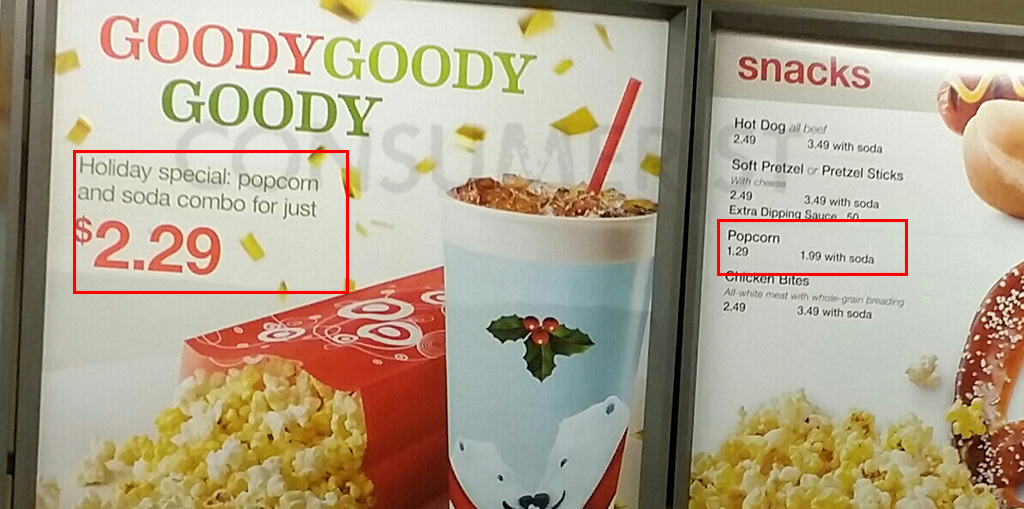
Target, Where Holiday Menu Specials Actually Cost You More Money
The jingle bells are jingling, the Santas are ho-hoing and it’s officially okay for everyone to be in the holiday spirit. But while it’s always nice of businesses to try to offer special deals for holiday shoppers, Target might need to rethink how it approaches the idea of a “deal.” [More]
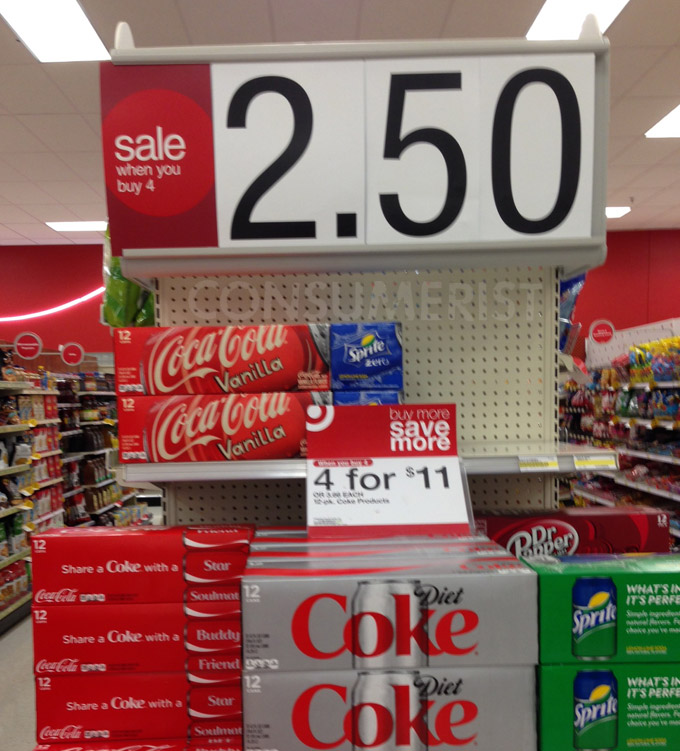
How Much Does Soda Cost At Target? Target Has No Idea
How much does a 12-pack of fizzy high-fructose corn water cost at Target? We would like to say that this is not a trick question, except for how it’s a trick question. Rather than “Target math,” where it costs more to buy a larger quantity of the same item, this soda display uses Target’s sale logic. The same item has multiple prices simultaneously. [More]
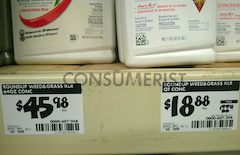
The Fun Thing About Target Math? You Can Find It At Home Depot & Walmart, Too
Don’t ever let anyone tell you what you can and can’t be, friends. The world is your oyster, the sky is the limit, the cliche is yours to abuse and the rules are made to be broken. So when you’re a retailer, don’t think the only store that can have Target math. [More]
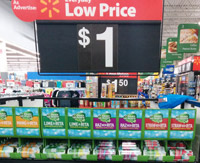
Obviously, Walmart Doesn’t Want You To Drink 12 Budweiser Margaritas
If one can of Budweiser’s malt beverage margarita-like substance costs one dollar, how much should twelve cans cost? That’s right…$12.97. Wait, what? If this math sounds a little off to you, apparently you don’t work at Matthew’s local Walmart. [More]
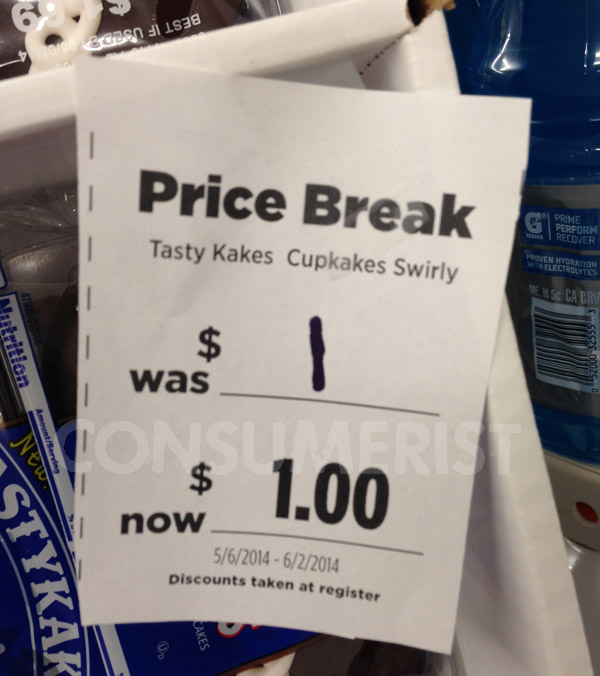
Adding Decimal Places Does Not Mean These Tastykakes Are On Sale
When you add decimal points to a price, does that make it a different number? That is to say, is $1 different than $1.00? It’s more accurate, sure, but it’s not a discount. Unless you’re shopping at Dollar General with reader John. [More]
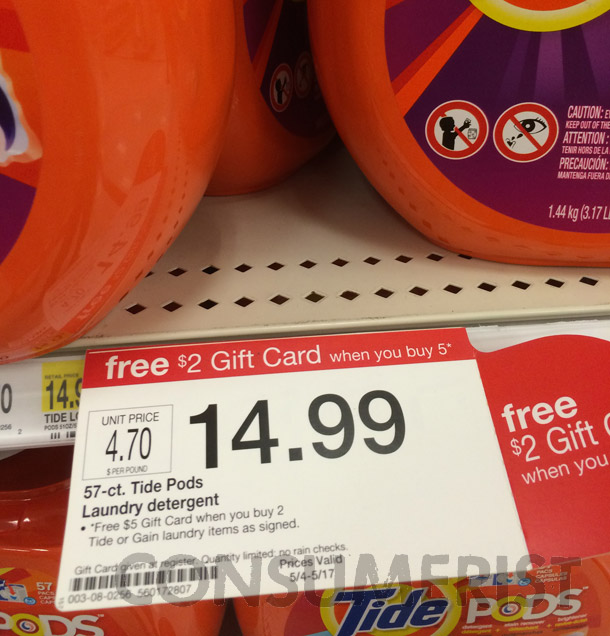
Target Promotion: $2 Gift Card When You Buy 5 Or $5 When You Buy 2
It’s not that we want to make fun of Target and their shelf tags stuffed with fuzzy math. We can’t help it. If only Target would try applying some logic to the signs it posts in its stores, we would stop posting those signs here on the site. [More]
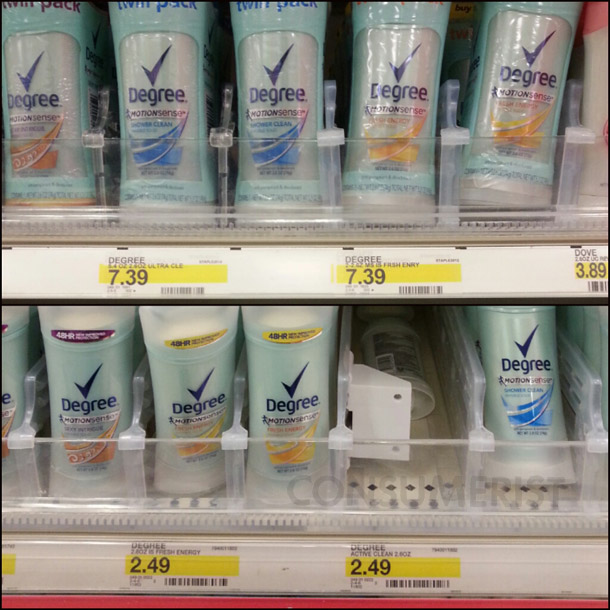
Time For Another Visit To Deodorant Aisle Of Target’s Reality Vortex
Erika was shopping at Target when she took a step in the wrong direction and ended up in an alternate reality. Or maybe entering a Target store is an alternate reality, where the Doritos are chilled and numbers have no meaning. [More]
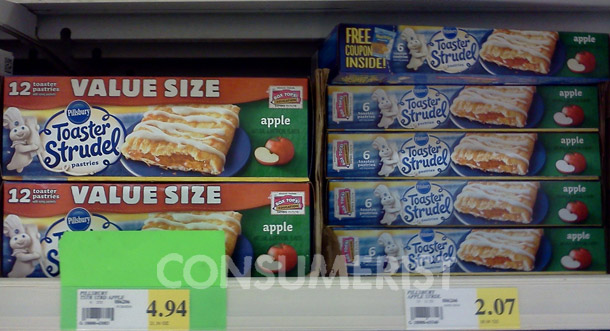
Coffee “Price Drop” At Meijer Means You Pay 10 Cents More
“Walmart and Target aren’t the only ones with weird ‘value’ pricing,” a reader pointed out to us in an e-mail over the weekend. Indeed, wherever there are price tags, sales, and workers who are not encouraged to use common sense, you will find fuzzy math. [More]
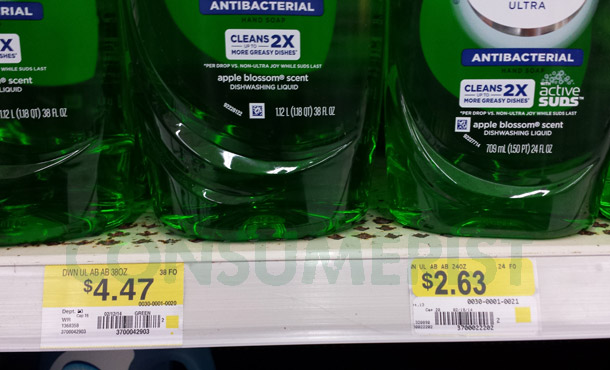
More Dish Soap Is A Worse Deal At Walmart
Larry has learned well here at Consumerist. When he was shopping at Walmart recently, he picked up some dish soap. Before assuming that the larger quantity was the better deal and tossing the 38-ounce bottle in his cart, he stopped to do some math. That’s when he learned that the math on these bottles was a little fuzzy. Sudsy? [More]


